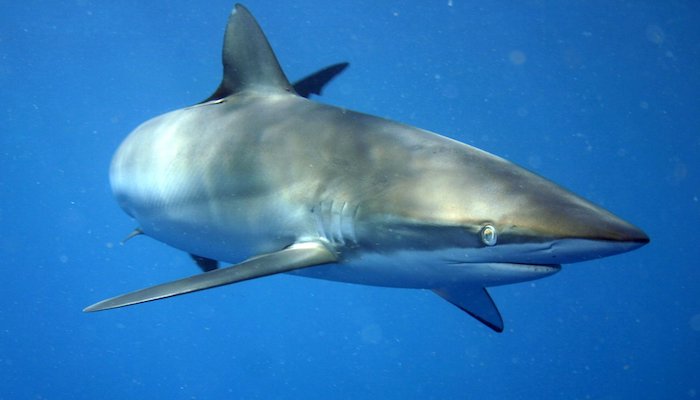
Muscat: The Environment Authority (EA), in cooperation with the Ministry of Agricultural and Fisheries Wealth and Water Resources and the International Fund for Animal Welfare Office in West Asia and North Africa, organised today a workshop on “Preparation of studies on not harming two types of sharks”, the first of its kind in the region
The seminar, in which six government agencies will participate will continue until Thursday and aims to shed light on the importance of conserving shark populations and applying the Convention on International Trade in Endangered Species of Wild Fauna and Flora (CITES), in addition to preparing studies on not harming the species (NDFS) and applying them to two species namely the silky shark and fox shark recorded in the waters of the Sultanate of Oman.
His Excellency Dr. Abdullah bin Ali Al Omari, Chairman of the EA, said in his speech: “The seminar comes within the framework of the authority’s interest in biodiversity in the waters of the Sultanate of Oman and a field survey of some water affairs in cooperation with the International Fund for Animal Welfare, adding that the seminar will present some studies for the conservation of various species of aquatic life in the Sultanate. Oman, especially as the speakers in it are experts and consultants from international houses of expertise.”
For his part, Eng. Sulaiman bin Nasser Al-Akhzmi, Director General of Nature Conservation at EA, stressed in his speech that preserving marine life and fisheries in the Sultanate of Oman comes as one of the pillars of its national priorities as it is the most important economic food sources that contribute mainly to food and economic security.
Al-Akhzmi added that the Sultanate of Oman has adopted many policies, plans and programs to develop this sector and achieve sustainable development in it, in addition to implementing control operations that focus on implementing laws and legislation issued in this regard, including oversight of the fishing fleet, border crossings and companies.
Al-Akhzami pointed out that the Agreement on International Trade in Endangered Species of Wild Animals and Plants (CITES), which the Sultanate of Oman acceded to on March 19, 2008, is one of the strongest agreements concerned with the preservation of wildlife and marine life in the world, which works to reduce smuggling and combat illegal trade especially cross-border trade.
Al-Akhzami said: “ Environment Agency, as the body responsible for protecting wildlife and biodiversity, is making unremitting efforts in the field of cooperation and coordination at all local, regional and international levels with the aim of controlling and ensuring that international trade in endangered species does not pose a threat to their chances of survival in nature. Among which are sharks included in the lists of CITES.”
Dr. Akram Issa Darwish, Director of Programs at the International Fund for Animal Welfare (Dubai), indicated in his speech that this seminar is the first to be implemented in the Middle East and North Africa in the field of preparing studies not to harm such fish.